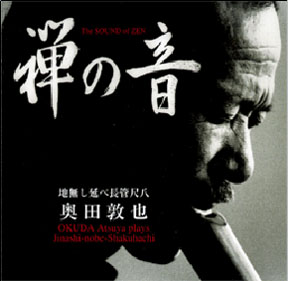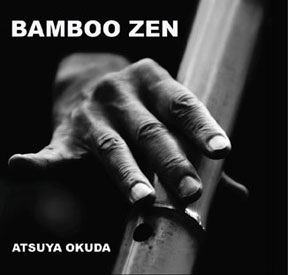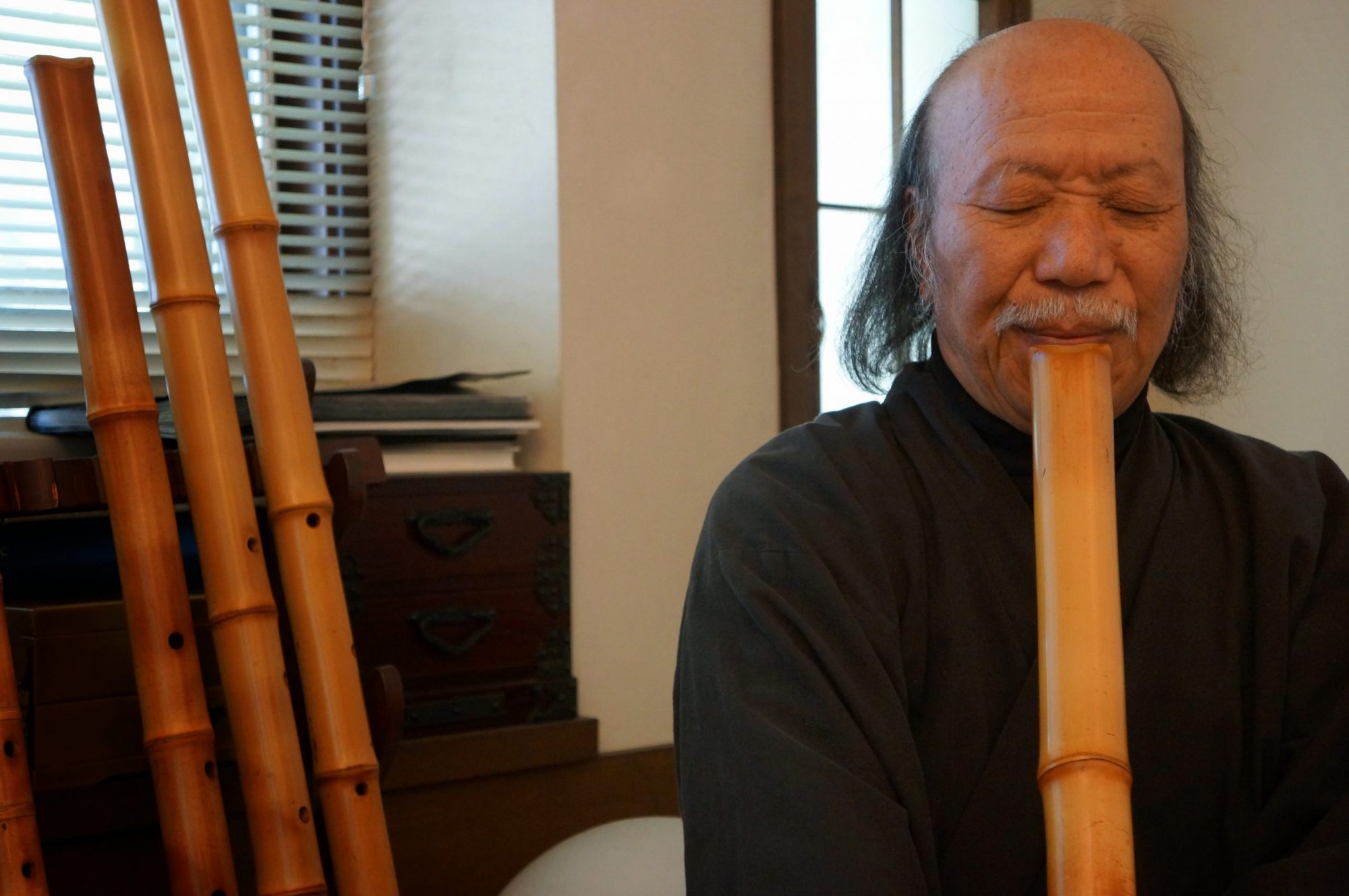Sound of Zen by Okuda Atsuya

1. Honte no Shirabe
2. Tsuru no Sugomori
3. Shinkyorei
4. Oshusashi
5. Tamuke
6. Koku
ATSUYA OKUDA, THE SOUND OF ZEN
by Clive Bell
“In 1985 Atsuya Okuda turned his back on a twenty year career playing jazz trumpet, and dedicated himself to teaching shakuhachi in Tokyo. Okuda subscribes to a purist, Zen-oriented approach to the instrument. As shown in the sleeve photos, he cuts bamboo in the hills and crafts his own flutes, which remain as natural and unworked as possible – no lacquered bore, no inlaid mouthpiece. This type of shakuhachi is called hocchiku, and the sound is fragile and intimate, a world away from the full, projected sound of the concert hall performer. In fact Okuda was apparently reluctant to make a recording at all, but we should be glad he has, for he is probably the finest player of his type since the death in 1992 of the Zen monk Watazumi (acclaimed by Steve Lacy as his favourite improviser in Wire 225). Okuda’s sound may be quiet, but his playing has terrific subtlety and a patience of almost geological dimensions – if a rock in a Zen garden could play music, this is what! it would sound like. His delicate phrasing on the ancient piece “Shin-kyorei”, tinged with multiphonic chords, is a joy to hear. The concluding 17 minute version of “Koku”, the ultimate hymn to Zen emptiness, is performed on a longer flute, and here Okuda reaches in deep, both in terms of pitch and spirituality.”
(This review originally appeared in Wired Magazine)
Bamboo Zen by Okuda Atsuya

1. Shoganken Reibo (2.5′) – Listen
2. Sokkan (3.1′) – Listen
3. Betsuden Shika no Tone (2.3′)- Listen
4. Shinkyorei – Listen
5. Tori Kadotsuke Hachigaeshi (2.1′)- Listen
6. Nerisaji (2.3′) – Listen
7. Futaiken Reibo (2.9′)- Listen
ATSUYA OKUDA & JINASHI
“Although Okuda mainly plays the traditional repertoire, honkyoku, played by the komuso, the Zen Buddhist monks of the Fuke sect, his music is always evolving and changing, the sign of a living tradition. His belief is that each piece and each note is complete in itself, and that one must set the mind in a state in which there is no audience and no performer. Each note is approached with originality as if it played for the first time – from this stance the union of new and old emerges. From this perspective, the sounds produced by the jinashi shakuhachi helps us, according to Okuda, to transcend music itself and unite with the universe.”
Kiku Day
